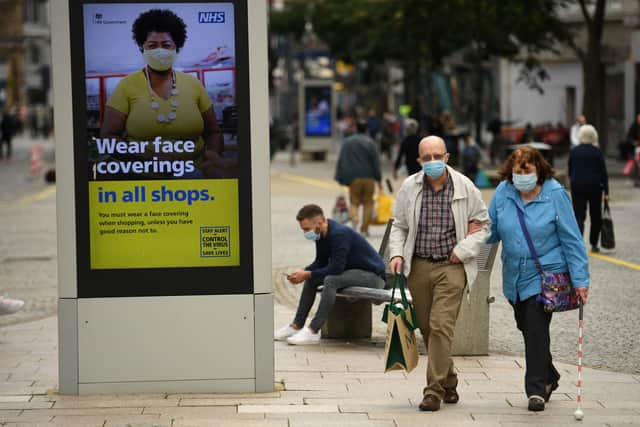Health chief reveals where the most Covid-19 transmissions happen in Sheffield
and live on Freeview channel 276
In his latest update on Sheffield’s Covid-19 situation, Greg Fell said that while the infection rate in Sheffield was ‘going the right way’ the city is ‘nowhere near out of the woods yet’.
He stressed the importance of testing and also of limiting the spread of the virus as much as possible to that the infection rate can continue to fall.
Advertisement
Hide AdAdvertisement
Hide AdMr Fell said: “It is clear throughout that most of the transmission events – the passage of the virus from person to person – has been in households.


"Most of us think we will get the virus from a stranger outside of our house, but the opposite is true. We’ll probably acquire the virus from somebody we know inside our house.
"Households are probably the least Covid-secure of all the places where we are. In houses we don’t wash down the touchpoints every two hours.
"Secondly we spend the most time there, and thirdly we feel safe there. Our guard is let down. We don’t wear masks in households, for example.
Advertisement
Hide AdAdvertisement
Hide Ad"Of course, it has to get in from somewhere, but these are the reasons why households matter.”
Mr Fell explained the factors that lead to the transmission of the disease, both outside and inside the household. These included environmental factors such as ventilation and cleaning, how many people a person comes into contact with and things to do with the host – age and susceptibility to illness.
“80 per cent of transmissions come from 20 per cent of people,” he added. “This is partly due to biological characteristics and partly behavioural.
"We can affect the behavioural stuff by washing hands frequently and avoiding crowded spaces.
Advertisement
Hide AdAdvertisement
Hide Ad"What people are doing is clearly making a difference. It is almost impossible to evidence that but a few things spring immediately to mind.”
Mr Fell explained that during the pandemic both gastrointestinal illness (tummy bug) numbers and global flu numbers have ‘fallen off a cliff’.
"This has happened since February when we started telling people to wash their hands more,” Mr Fell said. “The same things that protect us against flu and tummy bugs protect us against Covid."